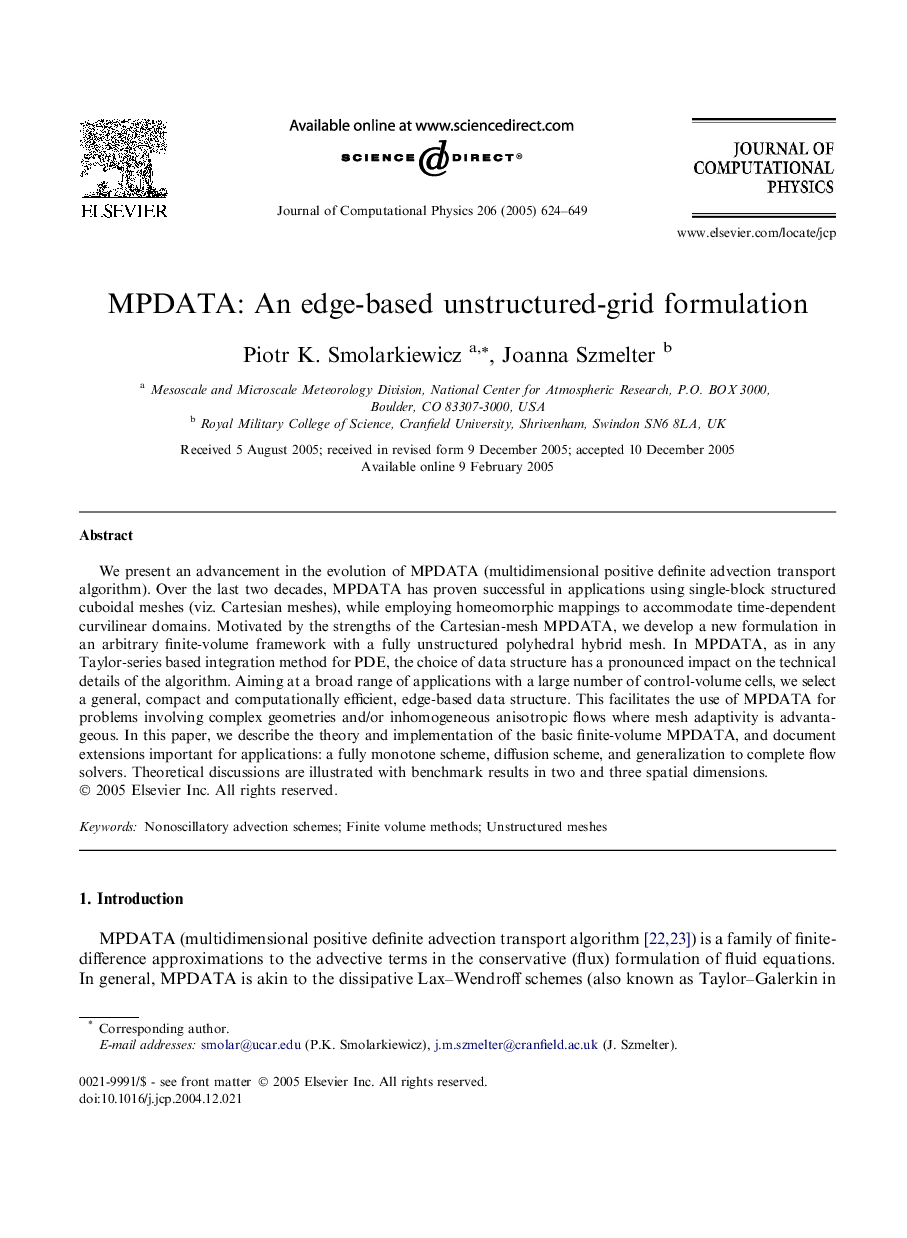| Article ID | Journal | Published Year | Pages | File Type |
|---|---|---|---|---|
| 10357903 | Journal of Computational Physics | 2005 | 26 Pages |
Abstract
We present an advancement in the evolution of MPDATA (multidimensional positive definite advection transport algorithm). Over the last two decades, MPDATA has proven successful in applications using single-block structured cuboidal meshes (viz. Cartesian meshes), while employing homeomorphic mappings to accommodate time-dependent curvilinear domains. Motivated by the strengths of the Cartesian-mesh MPDATA, we develop a new formulation in an arbitrary finite-volume framework with a fully unstructured polyhedral hybrid mesh. In MPDATA, as in any Taylor-series based integration method for PDE, the choice of data structure has a pronounced impact on the technical details of the algorithm. Aiming at a broad range of applications with a large number of control-volume cells, we select a general, compact and computationally efficient, edge-based data structure. This facilitates the use of MPDATA for problems involving complex geometries and/or inhomogeneous anisotropic flows where mesh adaptivity is advantageous. In this paper, we describe the theory and implementation of the basic finite-volume MPDATA, and document extensions important for applications: a fully monotone scheme, diffusion scheme, and generalization to complete flow solvers. Theoretical discussions are illustrated with benchmark results in two and three spatial dimensions.
Related Topics
Physical Sciences and Engineering
Computer Science
Computer Science Applications
Authors
Piotr K. Smolarkiewicz, Joanna Szmelter,
